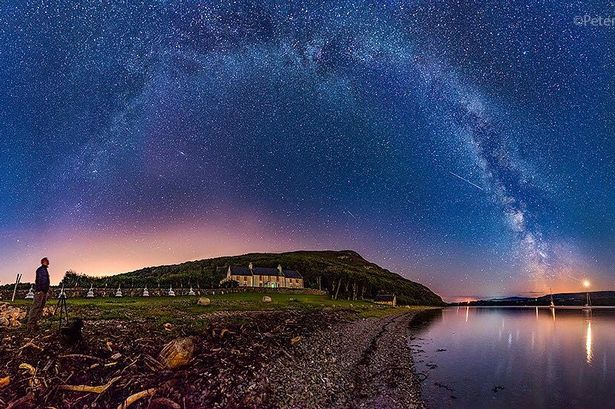This week, like many women my age, I have been pondering Brian Cox, but perhaps not in the same way as others! I have been wondering how he remains so relentlessly cheerful, despite the stick her gets for being, well, relentlessly cheerful!
I like to listen to radio four, but not in the traditional way. I like to listen in the 21st century way, by selecting podcasts of programmes that are informative, but also entertaining and the critical test is that they make me laugh. True BBC values – to inform and entertain. I tend to avoid the relentlessly miserable news coverage, which is too speculative for my tastes these days and not based in enough in what has actually happened. I like my news to tell me what has happened, not what might happen!
So I find myself this week listening to the Radio 4 pod casts of the Infinite Monkey Cage, in which Brian Cox and Robin Ince discuss a science based topic with a panel of experts and a well informed comedian. Some examples of topics are: Science of sleep, The Recipe to Build a Universe and What is Reality? As a science graduate, I like to keep up to date with science’s latest discoveries about our place in the universe and it also informs my understanding of the reality I find myself in. But then the pondering.

I think one side effect of a clear understanding of the place and significance of one human being in the context of an infinite universe is to not take ourselves so seriously. When I reflect that I am one human out of seven billion, on one planet circulating a star, the sun, one of the hundred thousand million stars in our galaxy, which is one of around 200 billion observable galaxies in the universe, I can take a more relaxed perspective in relation to my problems.
However, this doesn’t mean to say that we shouldn’t engage our energy to look after this beautiful planet of ours and it inhabitants, human or otherwise. This world of ours, including ourselves is made of chemicals that were formed in the centre of a long ago generation of stars, which exploded and then the resulting gassy expanse came together as our solar system. So we are all indeed made of star dust. The fact that the earth is at exactly at the right distance from the sun for water to be liquid, that the sun has been burning stably for such a long time, that the earth was formed with just the right set of chemicals, that the planet Jupiter shields us from regular asteroid strikes, are just some of the infinite causes and conditions that have led to the creation of life on earth and the evolution of all of the species we see on earth today. An awe- inspiring process, which again can cause a shift in perspective in relation to our problems.
However, I think that the key to Brian’s positivity could be curiosity.
As a scientist and as mindfulness practitioners, we have in common that we are in search of truth; on a journey towards understanding ourselves and our place in the world more honestly; on a pilgrimage in the direction of a clearer understanding of reality. Just being on such a journey, which has great personal worth for us, can give us a sense of wellbeing from living a meaningful life. This can be more meaningful if we can connect with others to share what we understand with others and reach a mutual understanding that can be of benefit for us all. This journey engenders curiosity about whatever happens, whether it is perceived to be a positive or a negative event.
I was struck by a quote from Brian, in which he states “The essence of science is being delighted to be wrong, because every time you are wrong you learn something”. Usually, we are so upset when we are wrong about something – or at least I am – and so how wonderful would it be to be delighted when we are wrong, to be curious about what happened and to see what can be learned. As Pema Chodron says, whatever happens we can learn from it, it can be our curriculum for the day.
So the next time we have a sense that something has gone wrong, we can do something different – don’t be so predictable! Instead of beating ourselves up, or denying the mistake, or blaming someone else, or whatever our habitual patterns are. Become curious. Turn towards our experience of ‘mistake’. What are our thoughts and story lines about the issue? What emotions do we notice and what physical sensations do we feel in the body? We can ask ourselves, is this typical of our usual reaction and what can be learned from that? We can ask ourselves how we feel about having that feeling that we have made a mistake, do we want it to go away, or are we able to allow our experience to be as it is, staying aware of our experience with curiosity to see what, if anything can be learned.
If we can make our difficulties the object of our mindful curiosity, then any situation becomes workable, an opportunity for practice and learning. In my experience, this workability becomes a source of joy and cheerfulness. Have a go and see what happens.
If that fails to cheer you up, do something you love or watch the video of Rick Hanson on the Conference Archive section of the Resources page of our website (click here). Rick Hanson will be one of the keynote speakers at our conference this June, for more information about the conference, please follow this link (click here), it would be wonderful to see you there.
Kind Wishes
Heather
To visit our website: click here

